Israel has emerged as a leader in transportation tech, even though the country does not have any car, train, bus or airplane manufacturers.
But as transportation increasingly becomes less about wheels and more about the computers inside, Israel’s high-tech prowess has not only become relevant, but highly sought after.
The highest-profile developments for the future of transportation tech revolve around electrification as we move away from pollution fossil fuels.
In this roundup, we look at 10 Israeli startups working to electrify our rides by ground and by air.
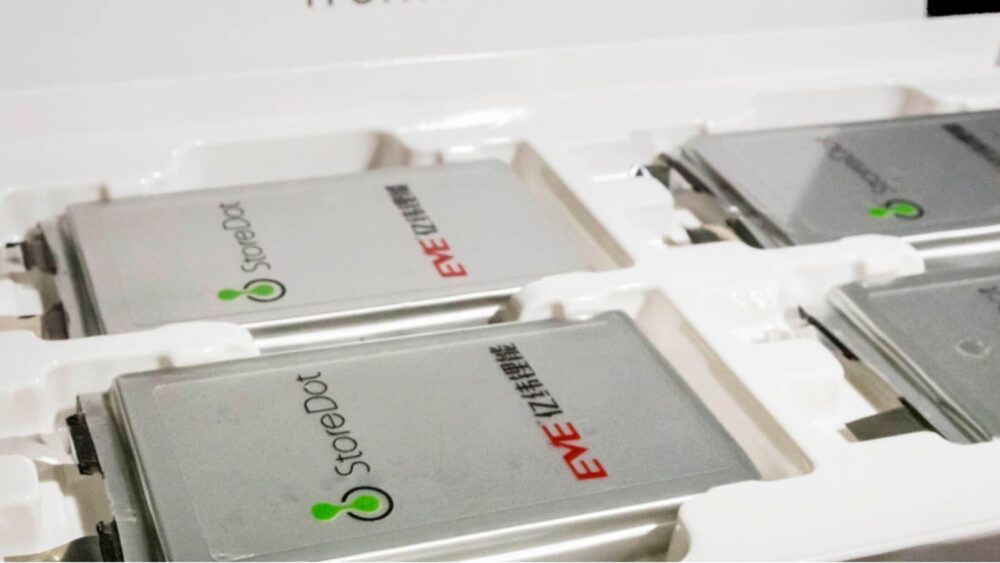
Even with the longer ranges of the latest electric cars, anxiety about running out of juice far from a charging station remains one of the biggest concerns for would-be EV buyers. How many miles is enough to feel comfortable you won’t get stuck? An EV with a UFC (ultrafast charging) battery from StoreDot can be “filled up” to capacity in just five minutes.
StoreDot replaces the graphite used by other electric battery manufacturers with a mix of metalloids including silicon and proprietary organic compounds synthesized in its labs. The company has partnered with BP Ventures to help convert the oil company’s 18,000 gas stations to electric, and with German manufacturer Daimler. In 2020, StoreDot expanded to fast charging drones. The company has raised $130 million.
“The structure of batteries hasn’t changed for 30 years,” says Moshiel Biton, CEO of Addionics. So, he set out to address an opportunity he describes as worth “trillions of dollars.” Addionics is changing battery architecture to increase the density in electric batteries by filling space that up to now has not been well utilized.
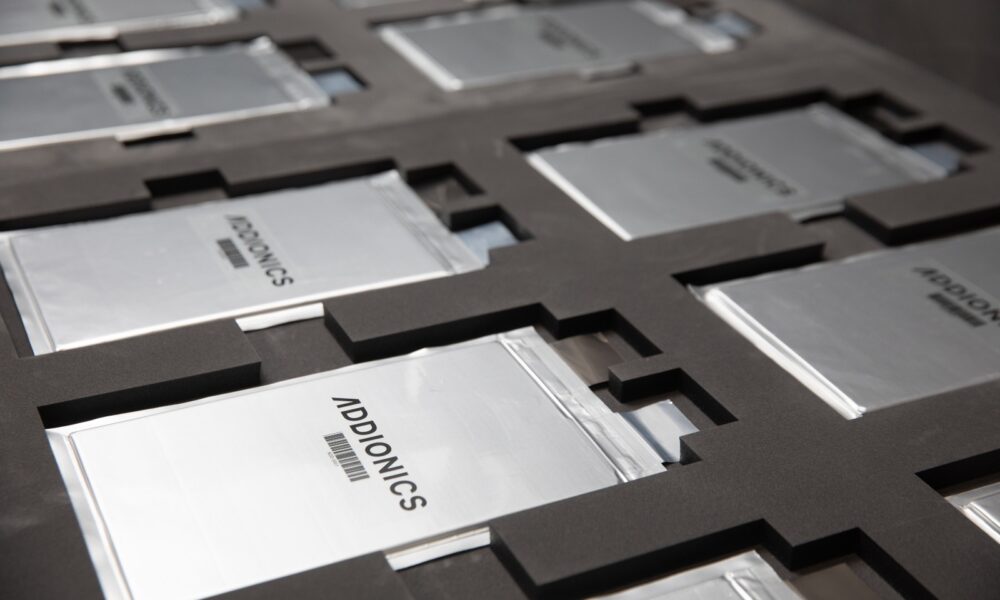
If most electric batteries are like a sandwich with the bread serving as electricity conductor and the cheese as the active material, Addionics’ integrates the cheese inside the bread, rather than leaving the cheese only on top, as with current batteries that use only traditional 2D electrodes. That increases charging speed (half the time to power up) and range.
Addionics “smart” electrodes can be easily integrated into existing production lines. It’s not just for cars – Addionics hopes to bring its tech to laptops, medical devices and wearables. Today (January 25) the company announced the closing of a $27 million Series A funding round.
However a battery is built – using lithium ion, synthetic metalloids or nano-powered electrodes – drivers still need to plug in. Tel Aviv startup Driivz builds the charge spots and software to manage a “cloud-based electric vehicle charging network.”
The company’s technology is used by over a million drivers around the world. Driivz was founded by parking lot maven Tsahi Merkur (he owns 100 such lots in Israel) who acquired some of the assets of Israeli electric car pioneer Better Place after the latter’s bankruptcy in 2013.
In 2016, Driivz became the preferred IT solutions provider in North America for EVgo, the largest network of public fast-charging stations in the United States. In December 2021, US fueling and equipment company Gilbarco Veeder Root acquired Driivz for $200 million.
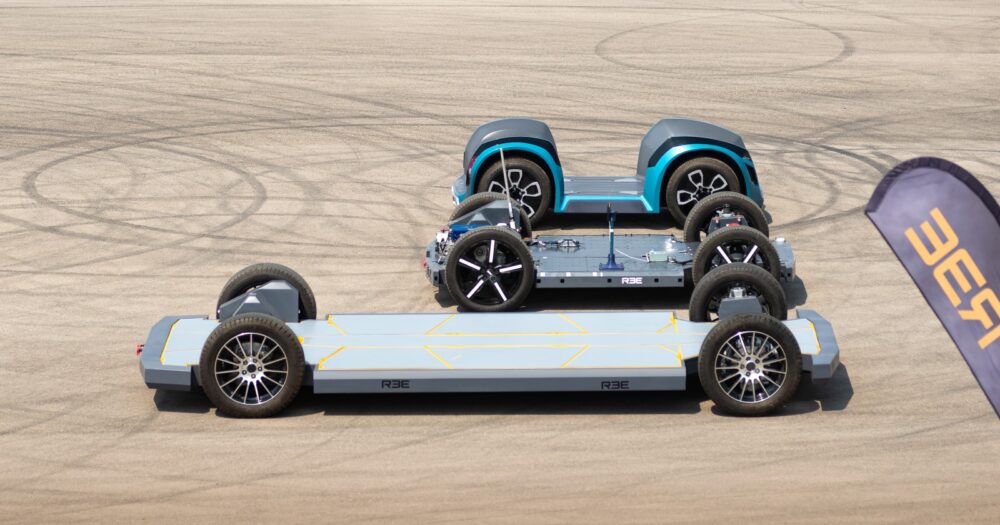
If battery technology hasn’t changed in 30 years, cars themselves are based on concepts that are over 100 years old, says Daniel Barel, CEO of REE Automotive.
REE places the wheels, gears, drivetrain and motor on a thin, flat platform that looks like a large skateboard. The REE platform is lightweight – making it ideal for EVs, which already run heavy – and can allow more batteries to be installed in a car, increasing range.
The REE integrated gearbox is just 6 kilograms (13 pounds) compared with typical gearboxes that clock in at 100 kilograms (220 pounds) and higher. REE’s platform can be used in a passenger vehicle or a 10-ton truck.
Since it can cost billions to design a new vehicle platform, that universality has the potential to save REE customers a small fortune. REE has partnerships with big players such as Hitachi and Mitsubishi-Renault-Nissan.
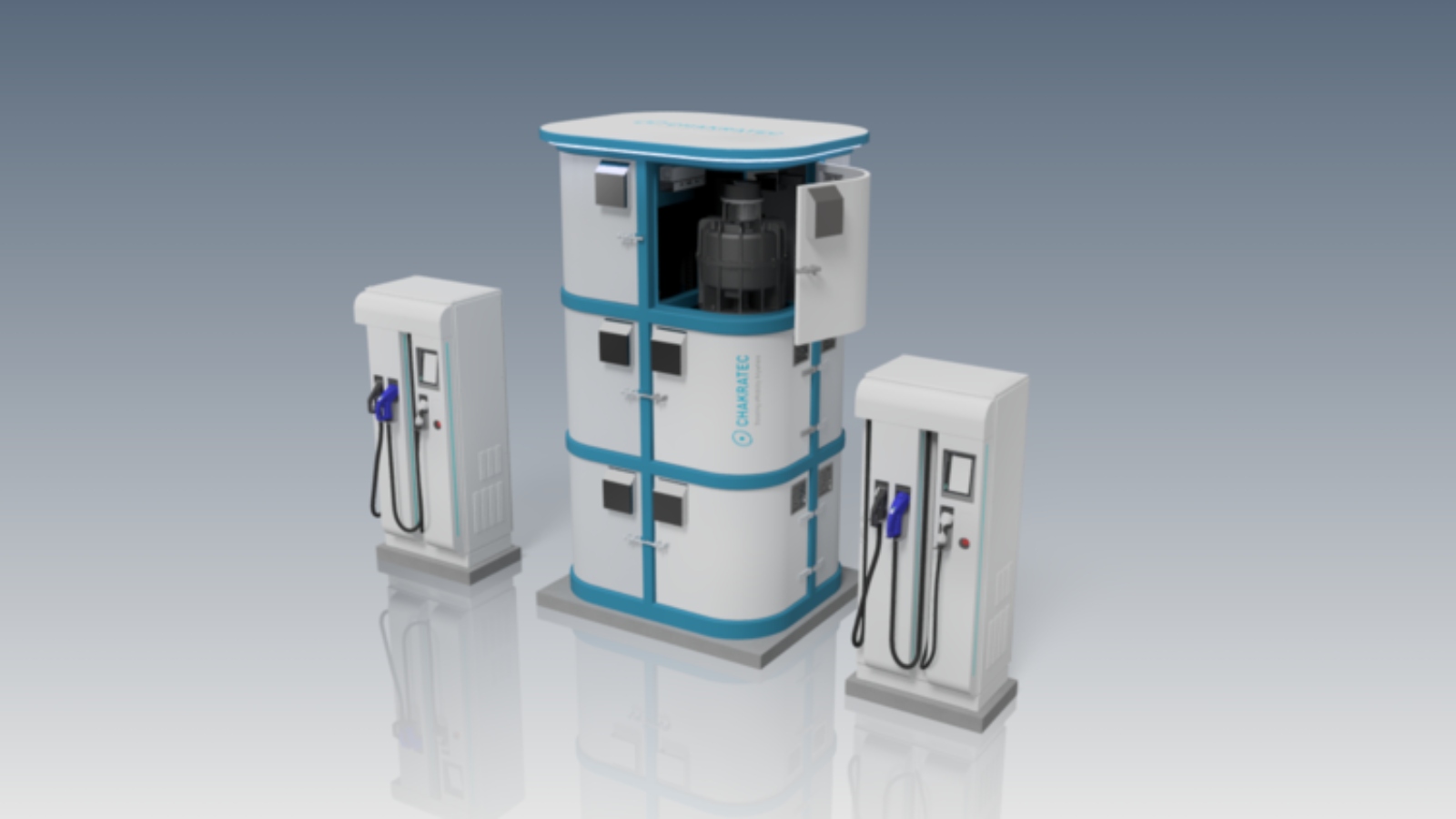
Like StoreDot, Chakratec’s mission is to make battery charging faster.
Chakratec’s floating flywheels suspended by magnetic levitation are intended for the charging station.
CEO Ilan Ben-David compares Chakratec’s kinetic storage technology to a Hanukkah dreidel. “When you put electricity in, the flywheel starts to rotate. Since the flywheel is suspended by magnets in a vacuum chamber, there’s almost no friction. So the flywheel keeps spinning at the same speed.”
The flywheel stores electricity until it’s ready to be transferred to a vehicle – more environmentally friendly than typical charging stations that store electricity from the power grid in large lithium-ion batteries. “Chakra” is Sanskrit for “rotating wheel.” Chakratec has a partnership with US-based Blink Charging.
Having to stop and charge is so old-school. Israeli startup ElectReon is building the power infrastructure into the road so that cars will be able to charge wirelessly as they travel. ElectReon installs copper coils under the asphalt and a receiver on the vehicle. A management unit communicates with other vehicles.
The first pilot was launched in 2019 on a 600-meter stretch in Tel Aviv using electric buses from the Dan Bus Company. ElectReon subsequently demonstrated its technology in Sweden with both an electric bus and an electric truck. Two more projects — in Karlsruhe, Germany, and along a toll road in Lombardy, Italy — are coming next. TIME named ElectReon to its “Best Inventions of 2021” list.
EVR Motors hopes to generate some currency with its new electric motor, which is less than half the size and weight of existing state-of-the-art RFPD (radial flux permanent magnet) motors of similar power. The company is now building dozens of preproduction motors to deliver to customers for evaluation.
EVR Motors aims to license its technology to third parties and set up its own assembly line in Israel to deliver motors at scale in the second half of 2022. The company will partner with Tier 1 integrators and car manufacturers, too.
EVR’s first motor weighs just 9 kilograms (20 pounds). It’s air cooled and low voltage, providing twice as much power and torque density compared to other state-of-the-art radial flux motors.
You’ve heard about a bicycle built for two. How about a tiny electric car built for one?
In urban environments, where parking is scarce, a CityTransformer will do the trick.
The super-small vehicle folds to take up even less space; four CityTransformers can fit into a single standard parking space. The vehicle has a range of 120 to 180 kilometers (74.5-112 miles) and a top speed of 90 kilometers (60 miles) per hour.
Israeli voluntary emergency response organization United Hatzalah has signed on as a client, reportedly purchasing 1,000 CityTransformers in a deal worth $22 million. Passenger vehicles (preorder price $14,500) are due to be commercialized in 2025.
“More than four billion people currently live in urban areas, and that will only increase in the coming years,” CEO Asaf Formoza says. “People need vehicles for city centers, for narrow streets, for tomorrow’s world.”
Israeli startup AIR unveiled its Air One “flying car” in October. The two-seater can take off and land vertically. Unlike other VTOL vehicles, which are meant to serve as air-taxis or for emergency responder use, the Air One is aimed at the private passenger market with a relatively inexpensive price of $200,000 a unit.
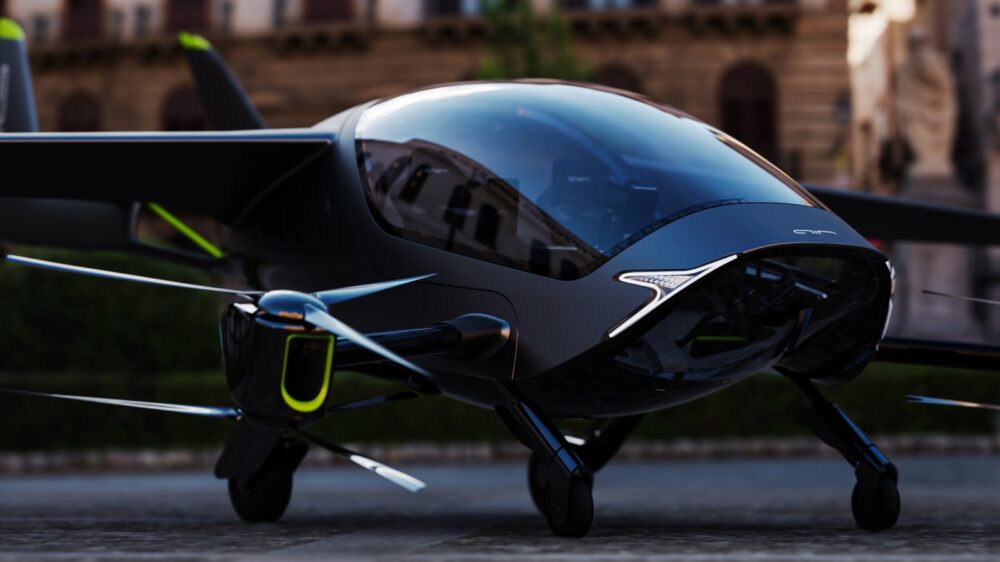
Unlike competitors such as Urban Aeronautics’ CityHawk, which will be powered by hydrogen fuel cells, the Air One will be a fully electric flying car with a range of 100 miles at a maximum speed of 155 miles per hour. Once AIR receives FAA approval, company CEO Rani Plaut hopes to see commercial production as early as 2024.
The Air One is foldable – it shrinks down to about the size of a pickup truck. The company is already taking $1,000 deposits from eager early adopters.
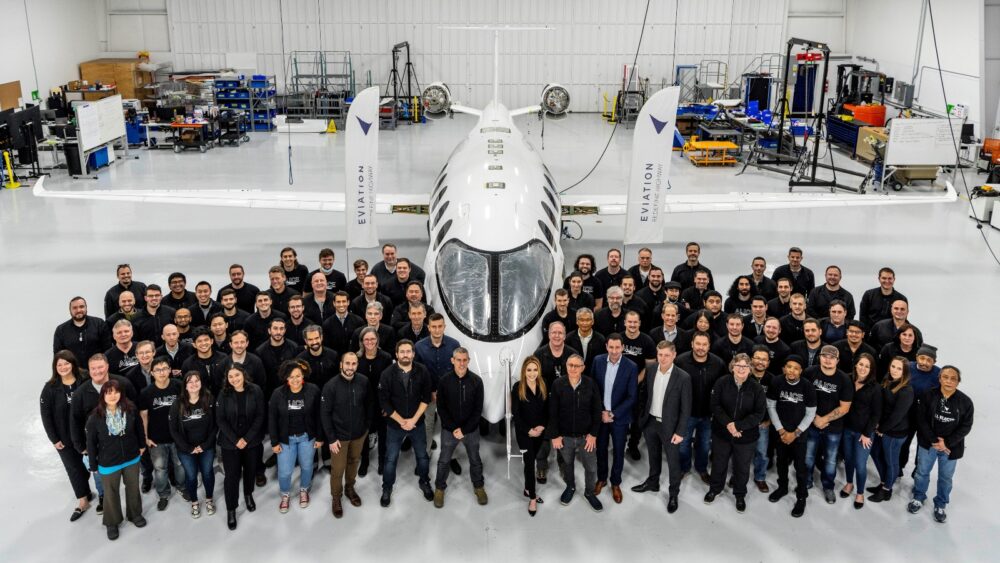
Israeli-American startup Eviation has developed a fully electric airplane, “Alice,” which seats nine plus a pilot and has a range of 440 nautical miles. The first commercial flights could begin in 2024.
In 2019, Eviation snagged its first client, Massachusetts-based Cape Air. In 2021, DHL placed an order for 12 Alices as part of its zero-emissions plan.
Eviation CEO Omer Bar-Yohay notes that the future of electric planes will mean a quieter environment for residents living near airports. Singapore-based Clermont Group owns a 70 percent stake in Eviation and provides the company with electric motors from its MagniX division. TIME put Eviation on its list of 100 “best inventions” in 2019.
Brian has been a journalist and high-tech entrepreneur for over 25 years. He combines this expertise for ISRAEL21c as he writes about hot new local startups, pharmaceutical advances, scientific discoveries, culture, the arts and daily life in Israel. He loves hiking the country with his family (and blogging about it). Originally from California, he lives in Jerusalem with his wife and three children.
First published on:Israel21c
The copyright belongs to Israel21c and the author.


